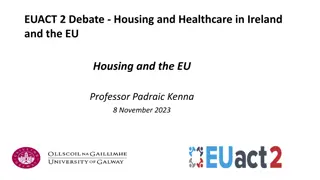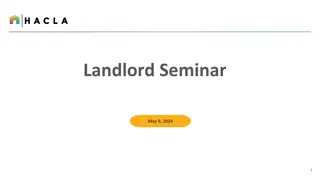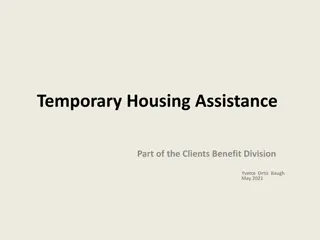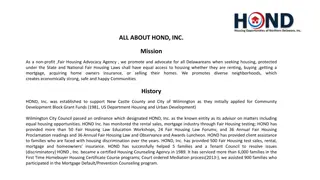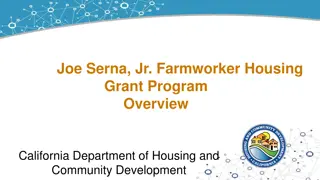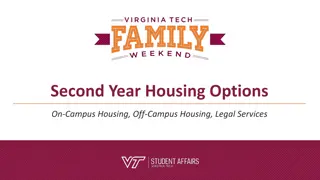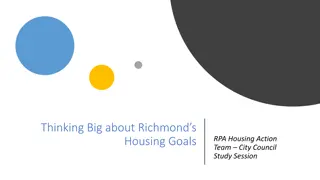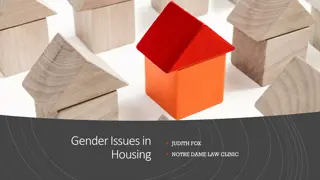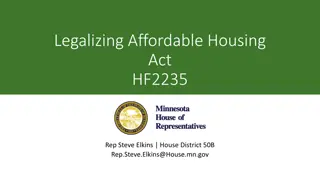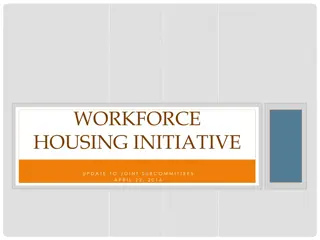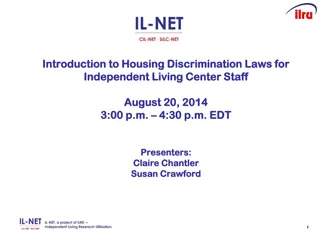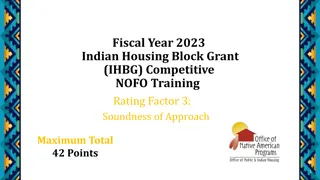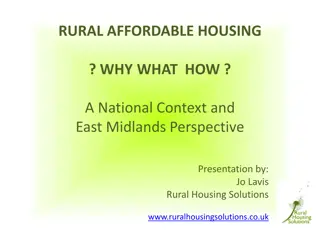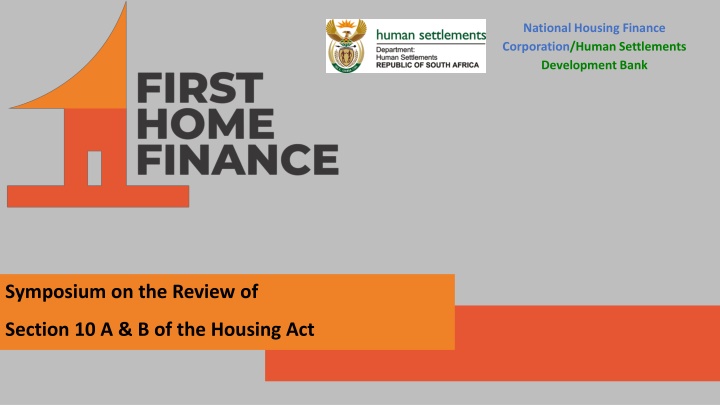
Review of First Home Finance Challenges under Housing Act
"Explore challenges faced with implementing First Home Finance subsidy, including limited exemptions, lack of MEC involvement, and administrative hurdles. Discover how these obstacles impact sustainable and affordable home-ownership opportunities in South Africa."
Download Presentation

Please find below an Image/Link to download the presentation.
The content on the website is provided AS IS for your information and personal use only. It may not be sold, licensed, or shared on other websites without obtaining consent from the author. If you encounter any issues during the download, it is possible that the publisher has removed the file from their server.
You are allowed to download the files provided on this website for personal or commercial use, subject to the condition that they are used lawfully. All files are the property of their respective owners.
The content on the website is provided AS IS for your information and personal use only. It may not be sold, licensed, or shared on other websites without obtaining consent from the author.
E N D
Presentation Transcript
National Housing Finance Corporation/Human Settlements Development Bank Symposium on the Review of Section 10 A & B of the Housing Act
WHAT IS FIRST HOME FINANCE ? First Home Finance is a once-off housing subsidy that enables qualifying beneficiaries to buy or build their homes on an affordable basis The Programme was developed by the Department of Human Settlements to enable sustainable and affordable first-time home-ownership opportunities to South African citizens and legal permanent residents Target is Low to middle income households earning between R3 501 and R22 000 per month, (the affordable or gap market). Households in these salary bands generally find it hard to qualify for housing finance; their income is regarded as low for mortgage finance, but too high to qualify for the government free-basic house subsidy scheme. Subsidy amount is a once-off subsidy on a sliding scale dependent on household income: The lower the income, the higher the subsidy; Household with total gross income of R3 501 qualifies for maximum subsidy of R169 265 Household with total gross in income of R22 000 qualifies for R38 911
CHALLENGES WITH SECTION 10A and 10B CURRENT EXEMPTIONS Section 10B (1) other than creditors in respect of credit-linked subsidies Challenge First Home Finance is also implemented in combination with non-credit sources i.e. Personal Resources Employer-Assisted Housing Schemes usually offering housing allowances, soft non-interest bearing housing loans Community Schemes housing loans to members (e.g. Stokvel) Can be accessed with Permission to Occupy--PTO (Traditional Authority) The above listed options are not covered under the current exemption
CHALLENGES WITH SECTION 10A and 10B Section 10b(5) An MEC may grant exemptions from the provisions of subsection (1) Challenges No involvement of MEC in implementation of First Home Finance, yet; The role of the MEC or their delegated authority is required to waive the pre-emptive clause 10b (1) Provinces are often not willing to provide for such a waiver for subsidies not approved by them OVERALL CHALLENGES Subsidy constitutes a small portion of the purchase price, it is unfair to restrict beneficiaries from actively transacting within the market Cumbersome administrative process of endorsing title deeds, seeking exemption by MEC Rural Communities and PTO s - no title deed to register with the Deeds Office - result in treating beneficiaries of the same Programme differently
For more information, please contact Tebogo Maila Business Development Manager Grant Facilitation Division First Home Finance Email: TebogoM@nhfc.co.za National Housing Finance Corporation SOC Ltd Financier | Innovator | Facilitator 5

